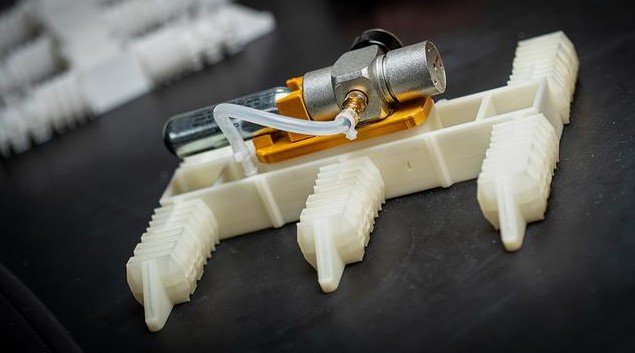Health secretary unveils bold vision to combat obesity through data-driven personal fitness tracking
Americans may soon be as familiar with wearables as they are with smartphones — if Robert F. Kennedy Jr. gets his way.
The U.S. Health and Human Services Secretary laid out a sweeping new plan Tuesday to drive mass adoption of health-tracking tech like Fitbits, Apple Watches, and Oura Rings. The goal? To fight the country’s ballooning obesity problem — and build what he calls “a culture of personal responsibility for health.”
“MAHA” campaign goes public — and hard
In his appearance before the House Energy and Commerce Committee, Kennedy didn’t mince words.
“We’re about to launch the biggest advertising campaign in HHS history to encourage Americans to use wearables,” he said. His voice was steady, but the ambition behind the words was unmistakable.
The campaign is part of the secretary’s broader “MAHA” agenda — shorthand for “Making America Healthy Again.” And wearables, he says, will be front and center.
One sentence stood out. “My vision is that every American is wearing a wearable in four years.”

A country with 40% obesity and rising healthcare costs
America’s weight problem is no secret.
Obesity affects roughly 4 in 10 adults, according to the CDC. Type 2 diabetes continues to climb. Heart disease remains the country’s leading killer. And healthcare spending? North of $4.5 trillion a year. Much of it preventable.
Kennedy believes one reason people aren’t taking better care of themselves is simple: they don’t know what’s happening inside their bodies. Wearables, he argues, can change that.
He says giving people real-time access to their heart rate, sleep cycles, and glucose spikes — particularly in response to food — will be “a wake-up call.”
“We want people to see the effect of that soda. That donut. That walk. That skipped workout,” he told lawmakers.
From Silicon Valley gadgets to federal health tools?
Wearables started out as techy fitness toys — the kind of thing early adopters or New Year’s resolutioners might strap on for a few weeks.
But today, the market’s growing up.
Companies like Apple and Google are embedding increasingly sophisticated sensors into their devices. Heart rate variability, skin temperature, blood oxygen, stress tracking — it’s all becoming standard.
And Kennedy wants to take that consumer evolution and fold it into public health policy.
Here’s what’s reportedly on the table so far:
-
Subsidies for lower-income Americans to access basic wearable devices
-
Partnerships with schools and insurers to incorporate data into wellness incentives
-
AI-powered dashboards that help users interpret trends, not just raw numbers
He even hinted that a federal “Wearables Data Trust” could be set up to allow people to contribute anonymized data for nationwide research — though privacy watchdogs are already raising eyebrows.
Supporters say it’s about time — critics say it sounds dystopian
Plenty of health experts say the idea has legs.
Dr. Marissa Tolland, a cardiologist in Chicago, says wearables are already helping her patients. “I have folks who bring me sleep reports. Step logs. Even rhythm alerts. It gives us something concrete to work with,” she said.
But not everyone’s sold on Kennedy’s vision.
Privacy advocates warn that encouraging every citizen to wear a data-collecting device, especially one tied to health, raises big concerns.
“Where’s the line between encouragement and surveillance?” asked Nadya Kinlow, legal director at DataBody Watch. “You can’t just strap a biometric monitor to a whole nation without asking who gets access.”
Kennedy’s team insists it’s voluntary. No mandates. No fines. But the branding is aggressive.
Past efforts in health tech adoption haven’t always worked
If this all sounds a little familiar, that’s because it is.
Back in 2009, the Obama administration invested billions in electronic health records under the HITECH Act. Adoption soared — but user satisfaction, not so much.
In 2020, the Trump-era COVID tracking apps faced skepticism and low uptake, despite millions poured into development.
Kennedy’s plan hinges on one thing that previous pushes lacked: people already like wearables.
A 2024 Pew Research report found 38% of U.S. adults use some form of health-tracking device, up from just 17% in 2019. Among adults under 40, the number jumps to 56%.
That gives the MAHA agenda a running start.
The numbers behind the health-tech push
Here’s how wearable adoption and obesity trends currently look in the U.S.:
| Metric | Value | Source |
|---|---|---|
| Obesity rate (adults) | 41.9% | CDC, 2023 |
| Americans using wearables | 38% | Pew Research, 2024 |
| Projected healthcare spending 2025 | $4.8 trillion | CMS |
| Most common wearables | Apple Watch, Fitbit, Oura Ring | IDC 2025 |
That 38% penetration number is important — because it means wearables aren’t just a rich person’s gadget anymore. They’re going mainstream.
Politics, policy, and personal control
Kennedy’s personal health habits are well-known — the man runs barefoot, eats clean, and has long touted natural therapies.
But now, he’s stepping into a political storm that blurs the line between lifestyle and public responsibility.
The campaign will roll out in stages, starting with national ads, then school-based pilot programs. Lawmakers on both sides seem curious — and cautious.
Rep. Sheila Barrón (D-Calif.) told Kennedy she liked the idea in principle, but wanted to ensure it wasn’t “just another tech cash grab.”
Rep. Greg Downs (R-Texas) voiced concern that the government might eventually penalize people who don’t track their steps. “What’s next, calorie credits?” he quipped.
Still, few deny that something needs to change. And Kennedy, never one to play it safe, seems determined to try.







